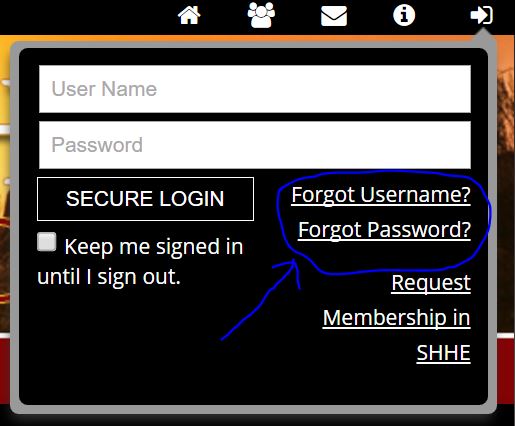FAQs
Q: |
What is SHHE? |
A: |
The Sacred Heart Home Educators (SHHE) is an association of Roman Catholic families in the state of Arizona loyal to the Holy Father and the teaching authority of the Roman Catholic Church. It is dedicated to inspiring, guiding, and encouraging families striving to live authentic Catholic lives through home education. It provides member families the opportunity to participate in various group activities as a means to this end.
|
Q: |
What events are available for members of SHHE? |
A: |
We have many annual events available for SHHE members! See this list for a description of each. In addition we have park days, Mom's Night Out, and more! Check the calendar for a list of what's coming up soon. |
Q: |
What is Safe Environment Training (SET) and why do I need it to join SHHE? |
A: |
Safe Environment Training is training required of all volunteers working within the Diocese of Phoenix. SHHE requires that one parent from each family have current Safe Environment Training. Click here for more details. |
Q: |
What are the Benefits for Parents? |
A: |
|
Q: |
Does the Church Support Homeschooling? |
A: |
|
Q: |
Is Home Education Legal? |
A: |
Yes. Every homeschooling family must contact the County Superintendent of Schools and request a registration form for each home educated child six years of age and older. The parents must fill out the form, have it notarized, and return it to the County Superintendent's office via U.S. mail. This form must be filled out only once for each child. No annual tests are required; however, should you choose to put your child in the public school system, a standardized test will be required prior to admittance.
|
Q: |
How Will Homeschooling Affect Our Family Life? |
A: |
|
Q: |
How Do I Know What to Teach? |
A: |
There are packaged curricula that come complete with tests, answer keys, lesson plans, and technical support via telephone. You can build your own curriculum, co-op classes with other families, hire tutors when necessary, or even utilize the community colleges for high school students. Your resources are only limited by your imagination. |
Q: |
How Do I Choose a Curriculum? |
A: |
Before you can choose a curriculum, it is important to define your family's education goals. Parents can choose from among complete curriculum programs, guided curriculum programs, unit studies, or an eclectic program they design themselves.
Parents frequently choose one curriculum approach and change to another in the following years as circumstances change, and as they begin to know themselves and their children's needs better. Upon enrollment in SHHE, you will have access to a community full of veteran homeschoolers willing to share their insights and experiences. |
Q: |
What About Socialization? |
A: |
|
Q: |
Do Colleges Accept Home Educated Children? |
A: |
Absolutely! Harvard, Yale, Stanford, and the U.S. Naval Academy to name a few of the secular schools. The University of Dallas, Thomas Aquinas College, Ignatius Institute at USF, Franciscan University of Steubenville, Magdalen, and Christendom college to name a few of the Catholic colleges. They rely on student portfolios, SAT scores, and personal interviews. Scholarships are regularly awarded to home educated students. |
Q: |
Help! I forgot my username! I forgot my password! How can I log in? |
A: |
The fastest way to get logged in (if you don't have your info) is to look directly beneath where you would enter the forgotten information. The website has tools to help you reclaim your username and change your password. See the section circled in blue below. If you have forgotten both your username AND your password, get your username first; you will need it to reset your password. |


